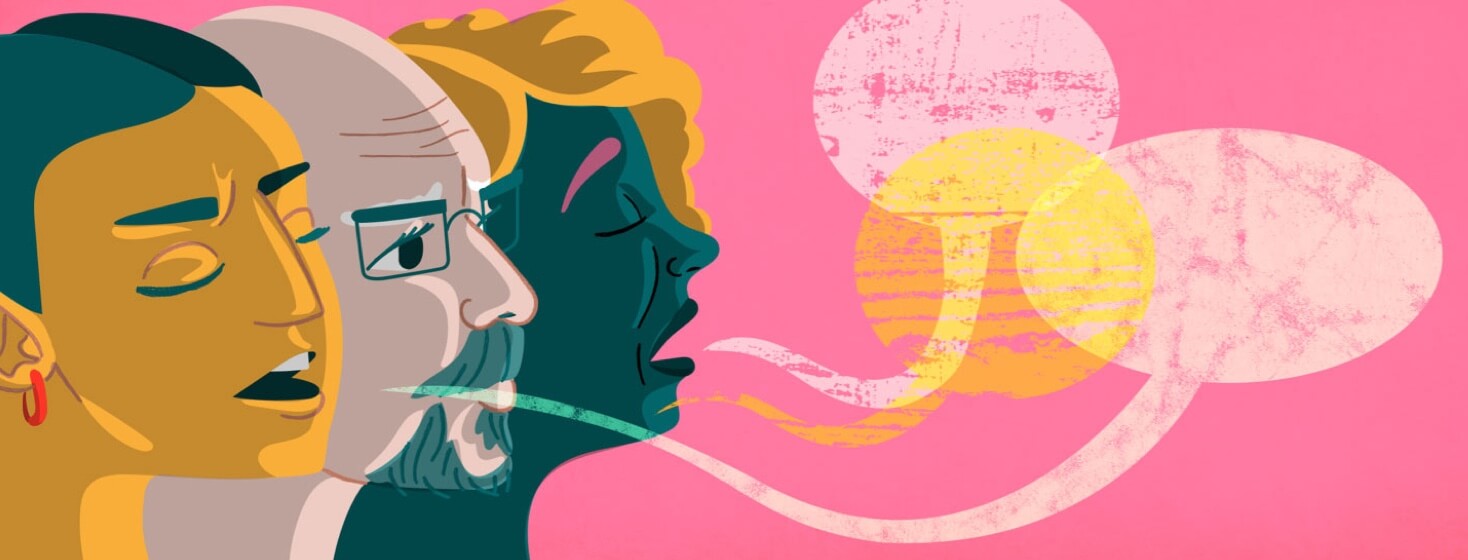Community Views: How Can Healthcare Teams Treat Narcolepsy Better?
Healthcare experiences can vary greatly with narcolepsy. Your healthcare team impacts how you feel. Doctors who listen and respond to your concerns create a positive experience. Medical gaslighting and feeling ignored create physical and emotional struggles.
We recently asked members of our Facebook community, “Have you felt supported by healthcare providers in managing your narcolepsy? Why or why not?”
Feeling supported by your healthcare team
Several of you have felt well-supported by your healthcare team. Your doctor listens and orders appropriate tests. You have a diagnosis and are confident in your treatment plan.
“He regularly does EEGs [electroencephalograms] on me and then lets the science support his diagnosis. I listen to his advice, and I trust him.”
“One of the few supportive and caring doctors I’ve had is my sleep doctor. He has helped me so much.”
“My sleep doctor has been wonderful. He listens. He was willing to try different medication when the first one didn’t work out too well.”
Not feeling supported
Other respondents did not feel supported by their healthcare team. Some said their doctors are not well-informed about narcolepsy. Lack of knowledge makes treatment and diagnosis more challenging. You might feel gaslighted about your symptoms. Some doctors might treat you as drug-seeking.
“My GP [general practitioner] is an extremely smart man but arrogant and refuses to learn. I’m realizing he likes me helpless.”
“I’ve never felt supported by any mainstream health providers. They constantly imagine I’m ‘drug seeking.’”
“I’ve had sleep doctors that I’ve had to educate on narcolepsy since most of them focus on the pulmonary/sleep apnea side.”
How can healthcare providers improve?
As a follow-up, we asked the Facebook community, “What could healthcare providers do to help treat narcolepsy better?” Several common themes emerged:
Listen and empathize
Every person deserves compassion and understanding from their healthcare team. Doctors need to take time to listen to symptoms. They should trust each person’s experience and not gaslight them. No one should feel dismissed and disregarded by their doctor.
“Acknowledge they actually HAVE it instead of gaslighting patients who are PAYING them for their treatment."
“Listen very carefully to how the patient describes the symptoms, don’t criticize.”
“Take us seriously. Treat us with empathy and compassion.”
Help me access my medicine
One common frustration was access to needed drugs. Increased restrictions on certain medicines make doctors hesitant to prescribe them. You may have been on these drugs for years without issue. Now, asking a doctor to prescribe them may cause the doctor to label you as "drug-seeking." It all results in poorer management of your narcolepsy.
“Stop being afraid to prescribe appropriate stimulant treatment as long as proper diagnostic history is available.”
“Stop treating those of us who respond to no other treatment except Adderall like we’re drug addicts.”
“I’m sick of paying for specialist copays because a GP isn’t comfortable prescribing medications I’ve been on for 8 years!”
Treat me as an individual
No 2 people are exactly the same. Bodies are unique, which affects what treatments are best. Doctors should treat each person with what is most appropriate for them. Seeing all narcolepsy patients through the same lens hurts the person.
“Not demand an MLST [multiple sleep latency test] for a diagnosis.”
“To treat each patient separately, not compare one to another.”
“They should listen and not apply standard rules to EVERYONE!!”
Learn about narcolepsy
Many doctors are not well-educated about narcolepsy. It would be helpful if more healthcare providers took the time to fill their knowledge gaps. Poorly informed doctors create additional roadblocks for those with narcolepsy.
“Educate themselves on the signs and symptoms.”
“Know what to do instead of asking us!!!”
“They could read up on recent research instead of going on old knowledge.”
Make the administrative process easier
The appointment process can feel incredibly frustrating. Long waits for an appointment and in the waiting room are challenging. Time of day is vital to consider for those with narcolepsy. You want to feel your best to communicate effectively with the doctor. Early mornings or dozing in the waiting room make that difficult.
“Decrease waiting times for appointments.”
“Stop scheduling our appointments early in the morning.”
Thank you
We appreciate everyone for engaging with these questions! Healthcare experiences can be challenging. It helps to know that others face similar struggles living with narcolepsy.
Want to see more articles like this? Browse our collection of Community Views articles and read more stories and advice from the narcolepsy community by clicking the button below!

Join the conversation